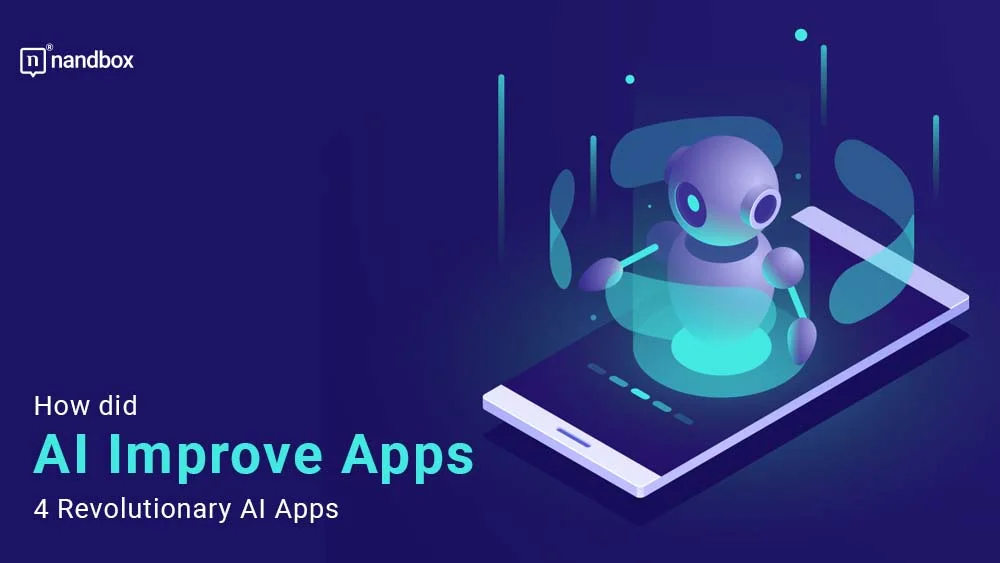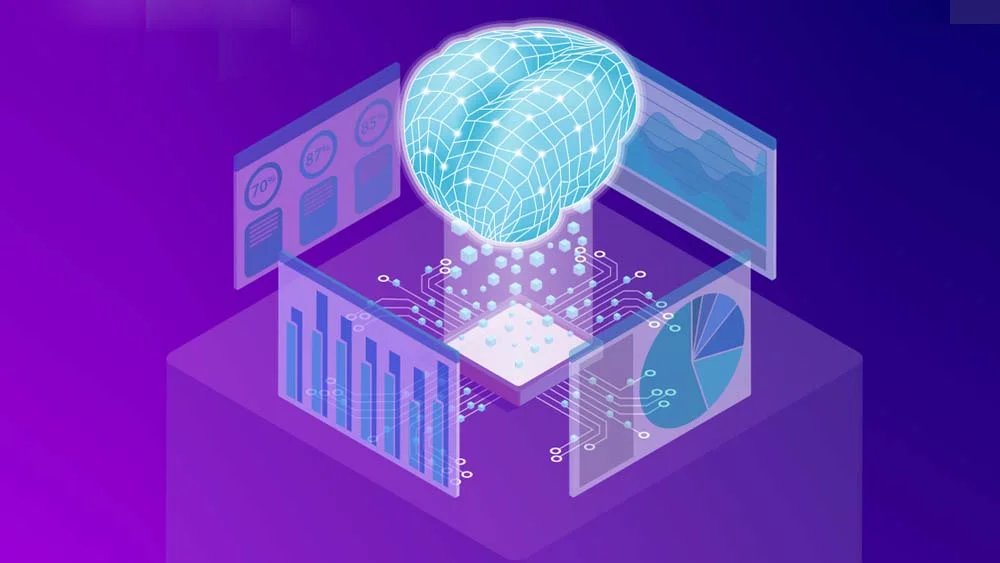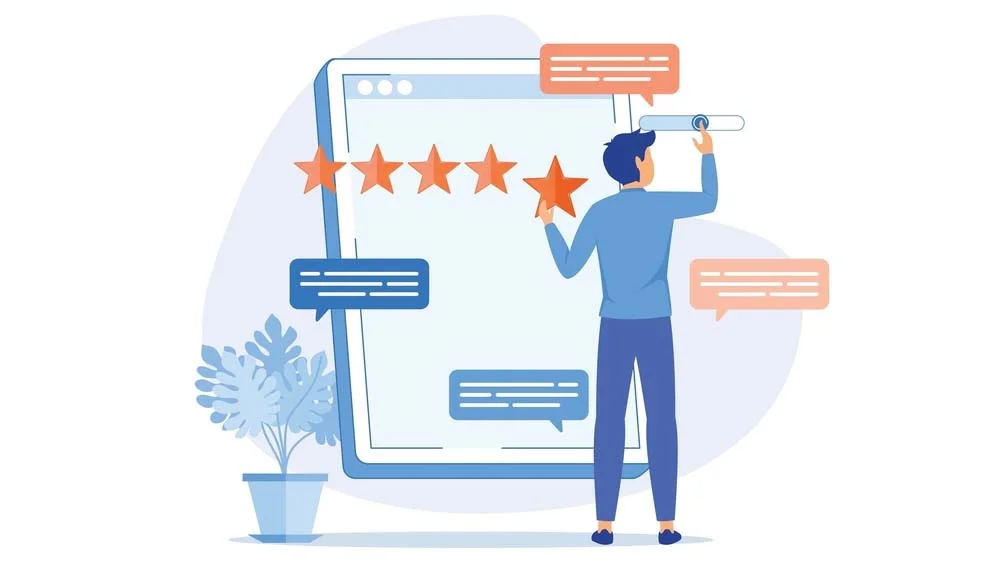Who could have predicted that machines would one day be nearly as intelligent as the human brain, capable of performing tasks, interacting, and learning? It sounds like something that only happens in sci-fi movies, right? What is even more amazing is that it is 100% reality and is progressing day by day. The technological evolution we are witnessing has made everything possible, even fiction. Artificial intelligence (AI) is one thing that people never imagined would be present in real life. In this article, we will discuss artificial intelligence and how it has improved many fields and industries, including mobile app development. We will also showcase AI apps that are a great part of everyone’s lives now. Moreover, we’ll delve into the role of a mobile app development company in this exciting era of AI advancement.
Understanding AI
AI, or artificial intelligence, is a prominent technology that dates back to the late 1950s. Yes, it is that old. Prior to the scientist Alan Turing first coming up with the concept of “thinking machines” and his speculations into how machines could be able to match human intelligence. This was the first step in developing such a great and broad technology. It was first developed and used in the field of computer science, with the aim of creating machines that could perform tasks that would normally require human intelligence.
AI mainly works by training machines to learn from data, recognize patterns, and make decisions based on that data. Based on the processed data, the machine’s capabilities differ from one to another. For instance, the machine that is fed with much more complex and larger data would function better than the machine fed with simple data. The evolution of AI didn’t stop there, as some machines now powered by AI technology can now gain skills on their own and evolve, just as the human brain does. It is a complex and ever-evolving field that has revolutionized the way we look at technology and its applications.
Benefits of AI in App Development
Predictive analysis
Predictive analysis is a crucial area where AI can greatly enhance apps. By using machine learning, which is another branch of AI. Apps can identify and analyze vast amounts of user data, thus, predicting user behaviors with a high degree of accuracy. These predictions can then be used to personalize app experiences, offering tailored suggestions and recommendations and optimizing user engagement.
Automate repetitive tasks
During the mobile app development process, some tasks may be repetitive and inconvenient. This is where AI comes to the rescue. AI can automate repetitive tasks, freeing up time for app developers to focus on more important tasks. This can lead to faster development times and more efficient use of resources.
Increased efficiency and Enhance User Experience
Additionally, AI can increase efficiency by optimizing app performance and reducing errors. Developers can easily utilize AI technology to detect bugs, errors, and glitches during the app development process or even afterward. This way, developers can be able to maintain and fix any problem that arises easily and seamlessly before it can affect the user experience and become a major problem. This can help improve and enhance the user experience, as well as optimize the performance and efficiency of the app.
Challenges in Implementing AI in Apps
Data privacy concerns
While this technology has undoubtedly improved the functionality of these apps, it has also raised some concerns among users. One of the primary concerns is data privacy and security. As AI apps collect vast amounts of user data, it is crucial to ensure that this collected data is used ethically and responsibly. Developers must take steps to protect user privacy and security by implementing strong data protection measures.
Integration with Apps
One of the most significant challenges in implementing artificial intelligence (AI) in applications is the integration of AI with apps. This can be a complicated process that requires careful planning and execution to ensure that the app functions correctly and that user data is protected. However, it is important to note that AI integration also offers significant benefits to the end-users, such as faster and more accurate results. And also many app builders like nandbox offers a seamless integration process.
User and Developers Acceptance
Nothing new gets accepted easily. Consider something major, such as AI technology. One of the biggest challenges facing the implementation of AI in apps is its acceptance by both users and developers. Some argue that the rapid evolution of AI is cause for concern because it is pretty much limitless. Also, the fact that it is embedded in almost all fields now. Some developers are not accepting AI technology, claiming that it will replace their roles in the app development process. On the other hand, users are worried about the fact that the AI is able to learn everything about their behavior and preferences, as they are completely unaware of how it will be used afterward.
Examples of AI apps
Siri
Siri is an AI-powered virtual assistant developed by Apple. It is available on all Apple devices. Siri depends on machine learning techniques to understand and respond to user commands. Users can ask Siri to perform a wide range of tasks, such as setting reminders, sending messages, making phone calls, playing music, and even providing answers to questions. Overall, Siri is a powerful and convenient tool that demonstrates the capabilities of AI technology.
Netflix
Netflix is a popular video streaming platform that takes really good advantage of artificial intelligence (AI) to enhance the user experience. The platform uses AI to analyze user behavior and preferences to personalize content recommendations. Based on the user’s viewing history, Netflix suggests movies and TV shows that match their interests and preferences. Netflix also took it t the next level, the platform also uses AI to optimize video quality based on the user’s internet speed and device capabilities, ensuring smooth streaming and the ultimate experience.
Elsa
Elsa is an AI-powered language learning app that uses artificial intelligence to personalize language lessons for individual users. The app can help users learn a variety of languages, including English, Spanish, and French. It uses this technology to understand how users speak and provide feedback to help improve pronunciation and grammar. The app also employs machine learning to learn from and adapt to each user’s learning style and rate, providing them with tailored lessons and techniques that will be useful.
Hopper
Hopper is another example of an AI app. It is a mobile app that uses artificial intelligence to provide users with personalized travel recommendations. The app uses powerful AI analysis capabilities to analyze vast amounts of flight prices and data to predict the best time to book a flight. By doing this, the app can help users save money on their travel expenses. In addition to predicting flight prices, it also provides users with recommendations on the best time to travel, the cheapest airports to fly from, and the days of the week to fly. The app can also send users notifications when prices drop or flights are modified or canceled.






